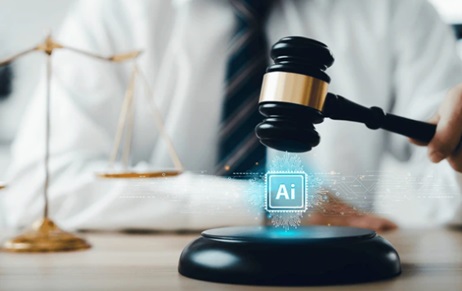Intellectual Property Rights (IPR) are like different keys for different locks. Just like every lock…
Headline: Dealing with John Doe Orders in India
Standfirst: In an effort to reduce piracy, the media and film industries are increasingly seeking John Doe orders against internet service providers, illegal unlicensed distributors and cable operators, say Amruta Mahuli, Abhijeet Deshmukh and Abhishek Pandurangi of Khurana and Khurana.
Pullquote:
“The injunctions on blocking of entire websites ought not be granted ‘unless it is demonstrated that the entirety of the website contains, and contains only, illicit material’.”
With one of the largest multimedia industries and consumer bases in the world, India’s media law jurisprudence has always attracted interest. Accordingly, in 2003 Indian finally entered the “John Doe orders era”, or the “Ashok Kumar orders era” as it is referred to in the Indian Judiciary context.
In 2003 the Delhi High Court in the case of Taj Television & Anr v Rajan Mandal & Orsfor the first time passed an exparte interim order allowing the plaintiff to search and seize equipment and devices of unknown defendants, thus starting the jurisprudence of passing orders against John Does/Ashok Kumars. While the Taj Television judgment was considered sketchy when it came to the implementation and formulation of directions for execution, the Indian courts have, in the past decade, evolved to deal with IP infringement instances.
Legislative background
The John Doe orders jurisprudence in India is still considered in its developing phase wherein the Indian judiciary and legal system are making a conscious effort to improve and evolve their laws with technology. John Doe orders in India are governed by Order 39,rules 1 and 2 of the Civil Procedure Code, 1908 (CPC), read with section 151 of the CPC and the provisions of the Specific Relief Act,1963 related to permanent injunctions.
Therefore, as prerequisites to procure John Doe orders, plaintiffs need to prove the prima facie case, with the balance of convenience and potential damage, while establishment of proprietary rights of the owner is mandatory. The Indian courts often rely upon the following John Doe order factors in the 2003 case Bloomsbury Publishing Group v News Group Newspapers:
“First, the claimant needs to demonstrate that he has a good arguable case against the defendant. The stronger the order, no doubt the stronger that case should be. Second, the order has to be in terms which clearly state what the defendant must and must not do. Third, it must be possible to identify the defendant against whom the order is sought. Fourth, it will only be effective against a person who, when made aware of the terms of the order, will understand that it applies to him.”
Having said that, there are certain intricacies involved, such as execution of orders in the light of technical limitations, and jurisdiction issuesaround the name of John Does identified merely on the basis of a numerical IP address, which may not actually fall within the court’s jurisdiction.
Implementing John Doe orders
In an effort to reduce piracy and its menace, the booming media and film industries have welcomed this change with a warm embrace, seeking John Doe orders for numerous movies against internet service providers (ISPs), illegal unlicensed distributors and cable operators.
On the other hand, some Court dictums have also attracted criticism for their overreaching effect. Such was the case in Star India v Sujit Jha and Ors, where the Delhi High Court passed a pre-emptive order to block 73 websites in their entirety meeting out the prayer by the plaintiff under the guise that: “It is extremely easy for the website to provide access to the blocked content through another URL since a mere change of a character in the URL string will result in a completely new URL.
“Consequently, it is extremely easy for a website to circumvent and thus nullify any order that directs blocking of specific URLs since such websites can very easily provide access to the same content by merely changing one character in the URL string. Thus, unless access to the entire website of the named and unnamed defendants is blocked, there is no alternate and efficient remedy that is open to the plaintiff.”
On appeal, the Divisional Bench of the Delhi High Court narrowed the scope of the order by restricting the blocking of certain URL links rather than the entire websites, but a bit too late—only after conclusion of the relevant sports series.
On another front, the Bombay High Court set out the protocol for the execution of John Doe orders against ISPs in the case Balaji Motion Pictures & Anr v Bharat Sanchar Nigam & Ors. The plaintiffs in this case were directed to serve a public notice stating the crux of the case and order passed by the court to the defendants, thus providing “sufficient service” to the defendants allowing them a period of four days to apply against the grant of injunction.
Denying excessive and unreasonable requests by the plaintiffs against John Doe defendants in the Dishoom case, Justice Patel strongly dissented with the plaintiff’s plea for blocking of access to 134 URL links that mostly were web addresses for entire websites, thus engraving a strong precedent that the injunctions on blocking of entire websites ought not be granted “unless it is demonstrated that the entirety of the website contains, and contains only, illicit material”.
On the other hand, the concerns raised by Justice Singh in Star India regarding setting up of illicit links on a differently named website or on the same website under a hidden or misleading HTML link or tag do not appear far from the truth as well.
The plaintiff in most cases procures the said order with the hope of prohibiting piracy of its films through various portals such as popular streaming websites, while on the other hand, the ISPs complain of web policing; finding the right balance and setting out strong precedents is therefore what the Indian judiciary is currently focused on.
Judicial guidelines
In 2016, the Bombay High Court in the case Eros International and Anr v BSNL & Others extended the requisite guidelines, not just for the executing authorities but also for the jury and the plaintiff, to deal with unidentified defendants, especially ISPs and anonymous bloggers who violate the piracy laws.
The court has instructed copyright holders to verify and authenticate the allegedly illicit links prior to requesting their blocking, while advocates and general counsels are mandated to verify these links again. Last, enforcing Order 39,rule 1 of the CPC, the plaintiff is mandated to submit all the material before the High Court as an affidavit on oath.
The court also issued guidelines to be followed by the courts while issuing a John Doe order: they are advised to review the list and verify its authenticity or delegate a neutral third party to do so. The ISPs are instructed to display a message on the blocked webpage that includes the particulars of the case and reason for blocking, the address of the copyright holder and a statement that any aggrieved person, including the viewers, may approach the court with atleast 48 hours’ notice to the advocates of the plaintiff.
This judgment also narrowed the validity of the block to 21 days, after which the plaintiff would be required to approach the court and obtain an order for extension of the ban.
Policing guidelines
With more and more John Doe orders being sought by media houses, the reality of how badly the media industry is affected by such piracy is evident, but courts are pressing towards the balance against arbitrary and unreasonable relief. Plaintiffs may reasonably limit their request for the relief sought, and the legislative and executive authorities may take a step further and establish regulatory commissions to police selected websites that are suspected of some infringement rather than completely shutting them down.
In the case of Reliance Big Entertainment v Jyoti Cable Network & Ors, the court asked the police to assist the film production companies to curb piracy without any norms or guidelines, thus granting excess discretion for the enforcing authorities which may stand to Constitutional scrutiny.
While such judicial activity spells trouble for illicit web users and websites promoting piracy, there is a new market for online entertainment platforms and streaming services where one can stream videos at a nominal cost or in some cases no cost at all. Unlike sites where there is a risk of pirated videos being uploaded, these services stream only pre-recorded or live videos and have obtained requisite licences from distributors, thereby stifling piracy.
The substantial urban population in India, who once habitually streamed and downloaded videos, books and songs online from illicit sources, are now opting for the safe sources, which guarantee good quality. Indian society and courts are trying to travel away from piracy, and although the destination seems far away, quite a distance has been covered.
Authored by:
Amruta Mahuli is an Attorney-at-law at Khurana and Khurana. She can be contacted at: [mumbai@khuranaandkhurana.com]
Abhijeet Deshmukh is an Attorney-at-law at Khurana and Khurana. He can be contacted at: [abhijeet@khuranaandkhurana.com]
Abhishek Pandurangi is a partner at Khurana and Khurana. He can be contacted at: [ abhishekp@khuranaandkhurana.com]



